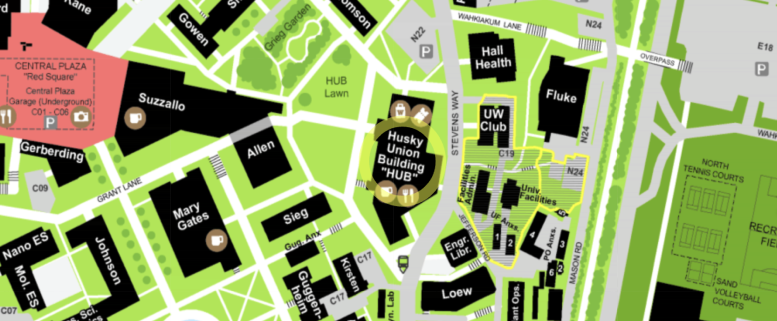Go Baby Go: Toolkits for Adapted Ride-on Car Workshops
Department of Mechanical Engineering
Requested:
$4,363
Status:
Funded
Awarded:
$4,363
Abstract
Go Baby Go (GBG) is an international, community-based mobility and socialization program founded in 2012 by Dr. Cole Galloway. Over the past decade, GBG has grown to over 200 chapters around the world, focused on providing adaptive mobility solutions for young children with disabilities who have not previously had access to high- and low-tech mobility opportunities to support development, movement, and social interaction with peers and family. GBG has been a presence in Seattle since 2016, first with the development of the community organization GBG Seattle, which was subsequently integrated as a UW program in 2020. This integration has been an exciting opportunity to increase our translational impact and enable greater collaboration with our vibrant UW community of students, researchers, and clinicians. GBG at the University of Washington is an outreach program through the UW Department of Rehabilitation Science that works with families, clinicians and industry partners to provide adapted pediatric mobility equipment to children with disabilities. The primary mission of GBG is to provide modified ride-on cars (ROCs) to these children to use as a powered mobility device for fun, function, and exploration. Ride-on-car are commercially available, off-the-shelf toys that are customized to the specific needs of each child, making them a convenient and affordable mobility solution. Typical ride-on-car modifications include the addition of seating supports (higher back, arm rests, harness) and rewiring the car for motion to be activated using an easy-to-press switch (typically placed on the steering wheel), rather than a traditional foot pedal. Our efforts are aimed at fostering an inclusive, sustainable, and multidisciplinary community that supports the fundamental human right to mobility for all children through: 1) understanding how early mobility and play can contribute to healthy development and learning, 2) teaching students, engineers, clinicians, and community members about ride-on-car modification, and 3) providing innovative, accessible, and cost effective technology options for children with mobility barriers at no cost to the families. One major mechanism by which GBG achieves this mission is hosting quarterly adapted ride-on car workshops, where attendees are trained to make off-the-shelf ride-on cars more accessible to children with disabilities. This involves assessing the ride-on-car's circuitry, implementing a toggle switch for instant on-off control and safety, installation of a potentiometer for speed control, and wiring in a headphone jack into the toy. This headphone jack allows for a variety of alternative activation switches to be plugged into the toy car so that the car can be activated by actions that work with the user’s abilities (such as tilting one’s head, moving one finger, blinking, etc.). Adaptive ride-on car workshops are a unique opportunity to: 1) teach students technical skills, such as soldering and tool usage, 2) explain complex concepts, such as circuits in a tangible way, 3) create a platform for students from diverse educational backgrounds to interact and discuss social justice and access issues affecting our community, and 4) impact our Seattle community by increasing access to early powered mobility for children with disabilities. This project seeks to create 10 toolkits that can be used by our network of UW student volunteers to participate in our workshops. Over the last five years, GBG Seattle has given out 100 ride-on-car to families in Western Washington. However, because our recent integration into the UW community occurred during the ongoing COVID-19 pandemic, only 13 cars have recently been constructed and given to local families. It is our hope to ramp up the program post-pandemic to increase access to early powered mobility for local children. We currently have the tool capacity to build 5 ride-on-cars with 2-5 people per station. However, there is a high demand for volunteer participation for our workshops, resulting in a volunteer waitlist for participation. As such, we are applying for the UW Student Technology Fund to acquire enough tools to have 10 independent toolkits. This will allow us to double our capacity to 10 car builds in one workshop. Additionally, this would allow up to 50 UW students at a time to participate in ride-on-car modification workshops to develop both their technical skills and understanding of inclusive design as well as expand the reach of our program to disability communities across the region. As pandemic restrictions are gradually lifted, there is an increasing demand for participation and need for: 1) teaching students technical skills and academic concepts related to technology and disability inclusion, 2) creating a platform for students from diverse educational backgrounds to interact and problem solve together, and 3) providing accessible, developmentally important pediatric mobility experiences to children with disabilities in our community.

